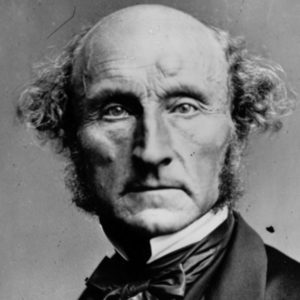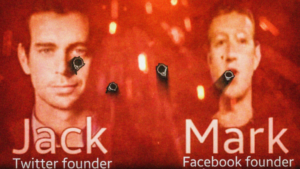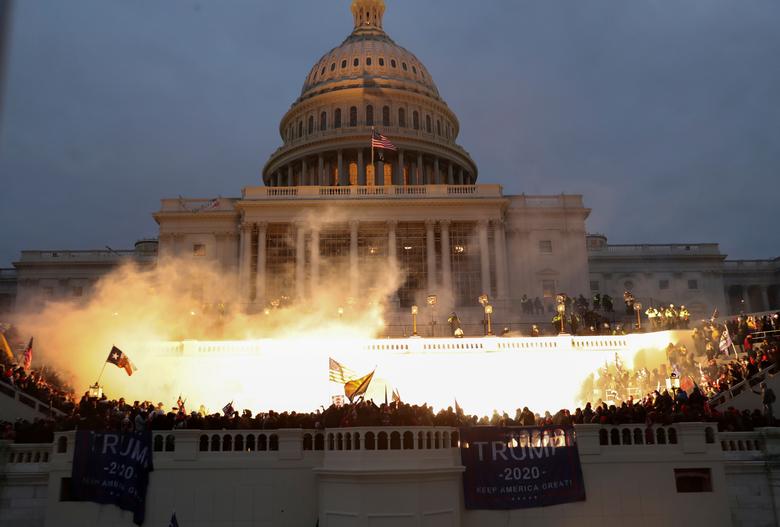PART II
Today, we leave the realm of abstraction and look at what happened. After all, why does liberal democracy exist anyway?
We are lucky. We, or at least most of us, (still) enjoy the blessings of living in a Liberal Democratic Nation-State. But how did we get here? And what should we do to maintain our good fortune?
This section of our course is about the making of the Liberal Democratic Nation-State. I use the word making quite deliberately. Everything has a history; you and I do as well. To understand anything, we must begin with its roots. The roots of Liberal democracy and the invention of the viable institutions to put this idea into practice didn’t come from nowhere. Like you, they have concrete origins and compelling histories.
In the spirt of the video by Steven Jay Gould (which you watched earlier), I shall argue that there was nothing inevitable about the rise of liberal politics, values, institutions, and ideas in the western world. Nor, for that matter, is there anything inevitable about liberal-democracy’s survival. All things must pass. Just ask Roman emperors, medieval princes, and John Stuart Mill.
Once we have worked our way through this historical background, I will provide you with some clues for understanding the crisis of liberal democratic politics in the US and Europe today.
While I proceed through the coming lectures, consider what Warren Buffett has to say about the “Ovarian Factor”: READ What does this article have to do with my arguments? Does it apply equally to all Americans? Does it apply to you? By the way, did you know that federal funding for prostate cancer research [per years of life lost] is nearly 12 times greater than funding for research on ovarian cancer? See here. How would Buffett explain the disparity?
A preview of a coming attraction. In a few weeks, we will discuss a provocative film called “13th.” HERE See positive and negative reviews below. Netflix is currently show “13th” for free on YouTube. Since most good things in life aren’t free, least of all when they are offered by Netflix, I recommend that you watch the film as soon as you can.
My goal in having you watch this film is to provoke you. You should feel free to come to your own conclusions about its message. I do not agree with all of the claims in the film. As always, be open to anything; think critically come to your own conclusions; be open to changing them later.
After the fall of Afghanistan: Reading #1
Also see this video and article about the execution and brutal treatment of women under the Taliban, common practice before 2001. HERE
5. Lecture, Wednesday, September 1
Reflections on the advent of a social, political, and economic culture that was conducive to the rise of Liberalism.
Today’s Assumption: Major events in Europe between the fifth and nineteenth centuries–the fall of the Roman empire, the birth of feudalism, and the Industrial Revolution–eventually made the institution of Modern Liberalism possible, although definitely not inevitable.
Assignment: Print and read the following chapter (Chapter 5) by Max Weber, one of the most influential, early social scientists and a pioneer of the theory of “unintended consequences.” As you reflect upon the essay by the Catholic priest, Martin Luther–Luther was definitely not a Protestant!–keep Weber’s theory of political and social change in mind. We can never understand our culture, or ourselves as individuals, without recognizing that those of us who grew up in North America were all raised as “Protestants.” Yes, this is true even of those Americans who self-identify as Catholics, and for that matter, even as atheists. To make sense of this statement, the key point is to understand what I mean by “Protestant.”
Max Weber, The Protestant Ethic and the Spirit of Capitalism, only chapter 5: PRINT AND READ
Background: Martin Luther, “The Freedom of a Christian” SKIM This is a long essay by an angry Catholic priest. Don’t worry about the details of Luther’s argument (there’s too much you won’t know). Just seek to get a general sense for the content and tone of his argument by glancing through it.
Also reflect upon the dirty secret below about the source of fundamental political change:
Benjamin Ginsberg, “Why Violence Works.” PRINT AND READ
6. DISCUSSION SECTION: Friday, September 3
Discussion theme: What would John Stuart Mill do?
Should media providers have the right to control the content on their sites. If so, how far should they be allowed to go if we want to preserve liberal democracy? Or, conversely, does the survival of liberal democracy require them to take extreme steps?
Dilemmas of liberal democracy in practice: In the aftermath of the January 6 assault on the US Capitol building, Twitter banned Donald Trump from posting on its site. Facebook imposed a temporary ban, which was subsequently upheld by FB’s review board (pending another review at a later date). The issue initially arose during the fall 2020 presidential election when Twitter began removing or commenting on Trump’s tweets. The articles below nicely cover the issues involved in a debate between Jack Dorsey and and Mark Zuckerberg about the rights and responsibilities of social media platforms in the US.
“Twitter hides Trump’s tweet for violating its rules about ‘glorifying violence.’” PRINT AND READ
“While Twitter Confronts Trump, Zuckerberg keeps Facebook out of it” PRINT AND READ
Mark Zuckerberg, Jack Dorsey, and the fight for social media’s soul” PRINT AND READ
Paragraph Assignment:
On the issue of controlling social media content, who is right: Jack Dorsey or Mark Zuckerberg?
7. LECTURE: Monday, September 6
Today I will talk about a meteoric development that shaped the character of Liberalism as we know it today: the opening of the boundaries of the political realm to the participation of ever broader sectors of society. Importantly, this development took place in different ways and in different countries. It is still taking place around the world today, even in the United States.
Today’s Assumption: The tumultuous intrusion of the “unwashed and unwanted” into the Liberal arena was unanticipated and, paradoxically, not welcomed by those whose decisions made it possible. In fact, if they knew it was coming, many elites would have done everything they could to prevent the “unwashed” from joining their circles. Yet only they could have made this development possible. How do we account for this unforeseen and unforeseeable transformation? Since people in power do not intentionally make decisions that will undermine their interests, I shall argue that a hostile idea, such as Liberalism, could only have arisen as the unintended consequences of the decisions of power holders. Weber agrees.
For one interpretation of the theory of unintended consequences, watch this instructive video: HERE
“In a democracy it’s your vote that counts. In feudalism, it’s your count that votes!” (McAdams)
Readings: .
Roger Kingdon, America the Unusual, Chapter 4
The American “Declaration of Independence” PRINT AND READ
The French National Assembly, “Declaration of the Rights of Man and Citizen” PRINT AND READ
The ideas behind the American Revolution and the French Revolution were different in important ways, although each resulted in liberal democratic institutions. How are these differences reflected in the two founding declarations above? Look closely at what the French Declaration suggests about the role of the state.
8. LECTURE: Wednesday, September 8
Reflections on the evolution of Political Parties in the West: Cadre parties, Mass parties, and Catch-all parties.
Today’s Assumption: Political Parties have been major instruments for including disparate groups of people in the modern nation-state, both in Liberal societies and, as we shall see later, other types of societies. Today, the catch-all party is the predominant type of party in the Liberal world, but it is increasingly under threat, especially in postcommunist Europe and, oddly, in the US as well.
Assignment: Reflect upon the role of catch-all parties in our era of intense polarization. If election to office is dependent on the financial contributions of special interests and the manipulation of voting districts and access to the voting booth, what is the reward for politicians to engage in compromise? And what is to prevent them from introducing even more restrictive policies?
If the idea of the catch-all party should fail, what type of party will replace it? Or without such parties, will liberal democracy simply fade away?
Roger Kingdon, America the Unusual, chapter 2
Michael Kazen, “How can Donald Trump and Bernie Sanders both be ‘populist’?” READ
Cas Mudde and Cristobal Kaltwasser, Populism, Chapters 1 and 5
What impact will COVID have on populism? Could populist movements become more extreme? What has happened thus far?
John Lichfield, “The next epidemic: Resurgent Populism,” April 6, 2020, POLITICO: READ
9. DISCUSSION SECTION: Friday, September 10
Discussion themes: Your discussion today will be focus on my argument about Protestantism and your own engrained attitudes: “America’s culture of radical individualism means that we are all Protestants?” Please keep these questions in mind: 1) If McAdams is right (and not bonkers), what does he mean by calling American Catholics “Protestants”? Why are even atheists Protestants?; 2) Is the culture of radical individualism that grew out of Protestantism and is epitomized by archetypical American heroes, such as Arnold Schwarzenegger (see Pumping Iron) and Eminem (see Eight Mile), a good thing? How Could Buffett’s argument the “Ovarian Lottery“ complicate our expectations of American heroes?
Reflect about: How might Weber’s theory, McAdams’ claims, and your other readings about US history help to account for our country’s disastrously poor response to the Coronavirus? On our remarkable failure to combat a disease that is, by this point, quite manageable, read HERE. Focus on the aspects of the article that relate to the distinctiveness of American culture. Try to strip away the partisan politics, and look at what’s underneath.
Assignment: Please identify one realistic antidote to the excesses of US radical individualism. Choose a concrete topic and state your response. When we read your paragraph, we should be able to understand exactly how you are justifying your argument.
Optional Discussion Topic: If you really want to move onto dangerous territory in considering the American concept of radical individualism, consider the issue of gun control and the passionate controversies it unleashes.
Readings:
Francisco Cantu, “Our gun myths have held America hostage for too long” PRINT AND READ
Clarence Thomas, author of the majority opinion, U. S. Supreme Court, June 23, 2022, regarding “NEW YORK STATE RIFLE & PISTOL ASSOCIATION, INC., ET AL. v. BRUEN, SUPERINTENDENT OF NEW YORK STATE POLICE, ET AL:
“New York’s proper-cause requirement violates the Fourteenth Amendment by preventing law-abiding citizens with ordinary self-defense needs from exercising their Second Amendment right to keep and bear arms in public for self-defense.”
10. LECTURE: Monday, September 13
Today, I will lecture about one of the two most important challenges to liberal democracy in the twentieth century: Fascism. The other major challenger was Leninism.
On the subject of Fascism, read both Benito Mussolini’s prognostications on a modern alternative to liberal democracy as well as the testimonies of a few of the millions of people who fell in love with this alternative. Then, reflect upon the significance of the recent popularity of hard-core Right-wing movements in Europe and the US. Could Fascism be lurking in our future?
Major Reading: Benito Mussolini, “The Doctrine of Fascism” PRINT AND READ Don’t worry about all the details, just concentrate on distilling the major features of his argument. Also, ask yourself why his vision might be appealing. Indeed, even today.
Question: Is there good or bad news looming on the contemporary horizon?
Dan Holleran, “The Opportunistic Rise of Europe’s Far Right,” The New Republic, February 16, 2018 PRINT AND READ
Here’s a debate about the potential for a resurgence of fascism:
Timothy Snyder is worried (Guardian, October 30, 2018) PRINT AND READ
Thomas Meaney is not as worried (New Statesman, September 12, 2018) PRINT AND READ
Who is right? Snyder or Meaney?
If you like, feel free to read about the controversy surrounding Tucker Carlson’s one hour interview of Curtis Yarvin (a.k.a. “Mencius Moldbug”) whom conservative columnist, Andrew Sullivan, has called an advocate of “twenty-first century fascism.” For the controversy over Carlson’s interview, see here.
Surf the web about Yarvin and decide for yourself whether he is right in insisting that his views have been misrepresented.
I looked up a couple of the quotes cited in the Media Matters article and I found them! Both sets of remarks are long and may drive you crazy, I’d advise against reading them in their entirety (at least for now). The first post, which includes Yarvin’s observations on slavery, is HERE (pan down the page until you get to slavery). The second, which seems to be a defense of the Norwegian mass murder Anders Breivik, is HERE (See the first section of his post)
For Carlson’s entire interview, see HERE
Feel free to watch the interview. However, it’s very long and the articles will give you shorter and, I think, largely accurate summaries. To get a taste, I recommend listening to the first three minutes, around .56 minutes, and around 109.30 into the interview.
Based on what you find here and in your own search, do you think Carlson should have given Yarvin a platform to express his views, even if Yarvin seems to be on fairly good behavior?
11. LECTURE: Wednesday, September 15
The advent of Fascism in Europe in the first half of the twentieth century was a searing challenge to the values and institutions of Liberalism. Liberalism‘s victorious response to Fascism was the Welfare State. Today, all Liberal Democratic states are Welfare States in one respect or another.
 Keep this in mind: Because we live in a liberal-democratic polity, we naturally assume that the Liberal idea will be instantly appealing to all people. Yet, Liberalism‘s victory over Fascism more than a half-century ago was far from certain. The good news is that Liberal Democracy won. Yet its triumph was facilitated by the convenient conjunction of two factors: the Allied powers’ (sometimes slight) military advantage and, as I shall suggest today the West’s acceptance of the idea of the Liberal Welfare State.
Keep this in mind: Because we live in a liberal-democratic polity, we naturally assume that the Liberal idea will be instantly appealing to all people. Yet, Liberalism‘s victory over Fascism more than a half-century ago was far from certain. The good news is that Liberal Democracy won. Yet its triumph was facilitated by the convenient conjunction of two factors: the Allied powers’ (sometimes slight) military advantage and, as I shall suggest today the West’s acceptance of the idea of the Liberal Welfare State.
During Barak Obama’s and Donald Trump’s presidencies and the presidential campaign of 2020, critics frequently equated support for the policies of the Liberal Welfare State with Socialism. Indeed, the rise of politicians like Bernie Sanders and Alexandria Ocasio-Cortez provided critics with the opportunity to warn about the threat of radical socialism. However, the equation of all forms of socialism would be inaccurate and downright ahistorical. Fascism was a socialist system of government. So was another political identity that we will consider in a couple weeks, Leninism. Whatever one thinks of their policies, Sanders and AOC have little in common with extreme forms of socialism. They call themselves “democratic socialists,” a strong-state version of liberal democracy that is virtually identical to the current policies of Social Democratic and labor parties throughout Europe.
Assignments:
On the subject of the Welfare State read:
Kingdon: America the Unusual, Chapter 1 and Chapter 3
Pew Foundation: “Five Ways in Which Americans and Europeans are Different” READ
Comparing Welfare States SKIM This page will give you a sense for the diverse types of liberal welfare states.
What might path dependency have to do with it? Comparative policies on public funding for maternity leave and child care and early childhood education: READ The theory of path dependency is an important component of this course.
And, “Going Dutch” READ. One person’s account of the Welfare State in action! If you don’t think this is accurate, visit Holland or any other European country and find out if it is true. It’s that simple. I have spent a good amount of my life living in Germany, and I have consistently been amazed at the benefits of a social-democratic welfare state.
12. DISCUSSION SECTION: Friday, September 17
Discussion Topic: Are liberal  democratic institutions in the United States and Europe strong enough to survive the rise of populist extremism? Indeed, now that you have read Mussolini, could the US even be on the verge of embracing something like Fascism?
democratic institutions in the United States and Europe strong enough to survive the rise of populist extremism? Indeed, now that you have read Mussolini, could the US even be on the verge of embracing something like Fascism?
For today’s section, read the chapters and articles below.
Cas Mudde and Cristobal Kaltwasser, Populism, chapters 3 and 4.
David Brooks, “How Democracies Perish,” New York Times, January 11, 2018 READ. One American conservative criticizes another American conservative. Based on this reading, who is right, Brooks or Deneen (Notre Dame)?
Peter Wehner, “The Democratic Party is Radicalizing,” The Atlantic (a critical assessment of populist trends in the Democratic Party) READ
Paragraph topic: “Will populism eventually lead to the demise of liberal democracy and its replacement by a political system that is much more dogmatic and authoritarian?” If yes, why? If no, why not? You may only take one side.
Your response to this question should take the form of an introductory paragraph to a longer, hypothetical essay.
I have two goals in making this assignment: I want you to think about the possibility that radical forms of “populism” might lead to the end of “liberal democracy.” And I want to challenge you to write a great introductory paragraph. Introductory paragraphs should typically do the following things: 1) state the issue; 2) state both your your argument and the argument that is likely to be raised against you; and, 3) provide the reader with a sense of how you will proceed.
I am asking you to write this paragraph in order to prepare yourself for writing your first essay.
Remember: One of my major goals in our course is to teach you how to persuade. Regardless of your field of study, if you know how to make persuasive arguments when you leave Notre Dame, you will have an enormous advantage over people who do not have this skill (which is most people).
Your first REFLECTIVE ESSAY ASSIGNMENT is HERE
You have one week to complete it.
REMINDER: REQUIRED FILM: “13th”
Please watch this film before Monday’s lecture. At the moment, Netflix is showing it for free on YouTube. HERE
Some critics like “13th” a lot. See ‘Thumbs Up’ HERE
Others don’t like it at all. See ‘Thumbs Down’ HERE
Please feel free to come to your own conclusions about the film. My goal in asking you to watch the film is to provoke you to think and talk about America’s problem with race.
13. LECTURE: Monday, September 20
Reflections on the inherently contradictory and conflict-ridden characteristics of Liberalism.
Today’s Assumption: Liberalism can’t live up to its name unless it has certain essential features. I have already outlined four characteristics. Yet by nature, Liberalism is unstable. The Liberal-democratic character of our government today is not necessarily the same as it will be tomorrow; it is certainly not the same as it was yesterday (especially in the current political climate!). Still, this capacity for change can be a very good thing. Indeed, if such Liberal-democratic bastions as Iceland, Monaco, Slovenia, Liechtenstein, Andorra, and the U.S. didn’t change over time, they wouldn’t be Liberal at all.
Liberal democracy is not only inherently conflictual. Regrettably, the features that make this political identity great can also be the source of its unraveling. In certain circumstances, good causes can be transformed into ugly sources of unrest and instability. We can see this in the U.S. and Europe today.
Reading assignments (most of them are short):
America is one darn complicated country
Suzy Hansen, “Unlearning the Myth of American Innocence” READ As you read this article, ask yourself what implications it has for our long engagement in Afghanistan and then our hasty retreat.
The Good…
Kingdon, America the Unusual, ch. 5
Chris McGreal, “The S-word: How Young Americans Fell in Love with Socialism” READ
Firing Line (1971): “Is American hospitable to the Negro? ” Jesse Jackson debates conservative talk-show host William F. Buckley about the promise and challenges of addressing inequality in the United States: WATCH AND TAKE NOTES
What does Notre Dame have to do with it? Read about Notre Dame students battling the Ku Klux Klan: READ
…the Bad, and the Ugly
Richard Fausset, “A Voice of Hate in America”: READ This article was widely criticized for supposedly humanizing fascism and extremism. Do you think this is a fair criticism?
Consider this: Under what circumstances would you resort to violence to protect Liberal Democracy? Or do you think the preservation of Liberal Democracy isn’t worth the risk of violence? If so, why?
14. OPEN CLASS DISCUSSION: Wednesday, September 22
I have undoubtedly made some controversial observations up to now (I hope so). Today, we will leap into more controversy by having a class discussion about the film, “13th,” and its message about liberal democracy in practice.

On a related note, is kneeling during the National Anthem a bad thing? “Kneeling at Our Lady’s University: READ
15. NO DISCUSSION SECTION: Friday, September 24
Your Reflective Essay will be due on this date. There will be no discussion section since you have been writing your essay.
It is your responsibility to make sure that your TA receives your essay on time. Your TA will clarify when and how you are to turn it in. Your essay should have a title and be double-spaced. See the link to the assignment above for all of the other specifications. Be sure to put your name on your essay.
